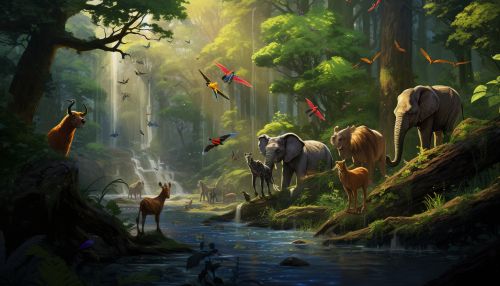Sociobiology
Introduction
Sociobiology is a field of scientific study that is based on the assumption that social behavior has resulted from evolution and attempts to explain and examine social behavior within that context. Often considered a branch of biology and sociology, it draws from ethology, anthropology, evolution, zoology, archaeology, and population genetics. Within the study of human societies, sociobiology is closely allied to the fields of darwinian psychology and human behavioral ecology.


History and Development
Sociobiology's roots can be traced back to Charles Darwin's work, particularly his theories of evolution and natural selection. However, the term "sociobiology" was first coined in 1946 by the entomologist Edward S. Wilson in his book "Sociobiology: The New Synthesis". Wilson's work sparked a great deal of controversy and criticism, particularly because of his suggestion that human social behavior, including altruism, could be explained by evolutionary theory.
Theoretical Framework
The theoretical basis of sociobiology is that many social behaviors have been shaped by natural selection and, as such, have evolutionary underpinnings. This is based on the principle that behaviors which enhance an organism's ability to survive and reproduce will be more likely to be passed on to subsequent generations. This includes behaviors that enhance the survival and reproductive success of close relatives, a concept known as kin selection.
Key Concepts
Genetic Determinism
One of the key concepts in sociobiology is genetic determinism, the theory that behavior is largely determined by genes. This concept is often controversial, as it seems to suggest that individuals have little control over their actions and behaviors. However, most sociobiologists do not argue for a strict form of genetic determinism, but rather suggest that genes and environment interact in complex ways to shape behavior.
Altruism
Another key concept in sociobiology is altruism. Altruism refers to behaviors that benefit others at a cost to oneself. From an evolutionary perspective, altruism can be puzzling, as it seems to go against the principle of survival of the fittest. However, sociobiologists explain altruism through the concept of kin selection, arguing that altruistic behaviors can enhance the survival and reproductive success of close relatives, and thus the propagation of shared genes.
Social Structures
Sociobiology also examines social structures and hierarchies within animal and human societies. These structures are seen as the result of evolutionary pressures and are studied in terms of their impact on survival and reproductive success. This includes the study of mating systems, social roles, and power dynamics.
Criticisms and Controversies
Sociobiology has been subject to numerous criticisms and controversies. Some critics argue that sociobiology oversimplifies complex social behaviors and reduces them to mere genetic determinism. Others argue that sociobiology can be used to justify social inequalities and injustices by suggesting that they are the result of natural selection rather than social and political structures.
Conclusion
Despite the controversies and criticisms, sociobiology has made significant contributions to our understanding of social behaviors and their evolutionary underpinnings. It has provided valuable insights into the role of genes and environment in shaping behavior, and has helped to bridge the gap between the biological and social sciences.
